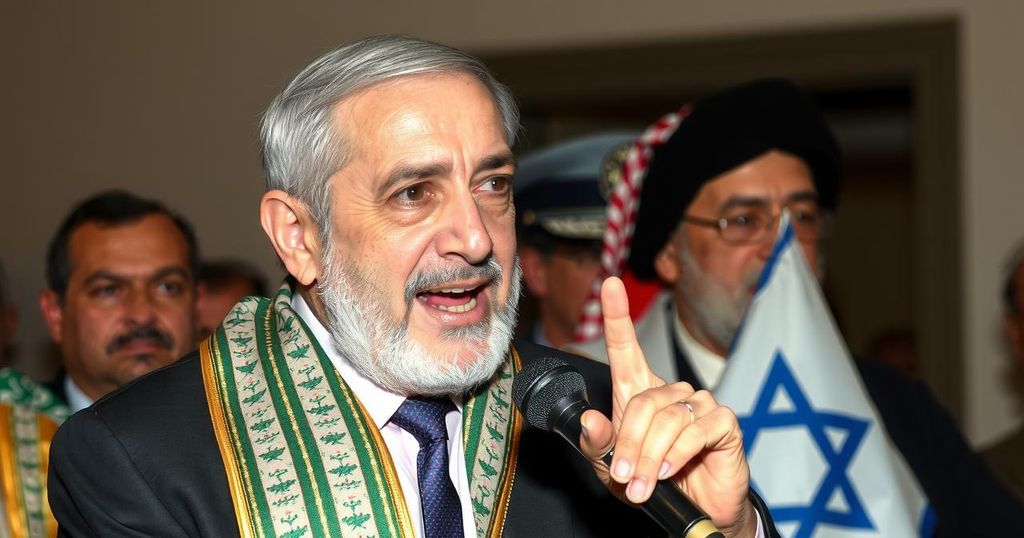Jimmy Carter, remembered as the architect of Arab-Israeli normalization via the Camp David Accords, inadvertently initiated a slow abandonment of the Palestinian cause by Arab states. His legacy presents a complex interplay of pursuit for peace alongside perpetuation of Palestinian marginalization, a trend that has continued into modern normalization efforts, necessitating a reevaluation of US policy to support Palestinian rights.
The late President Jimmy Carter, remembered at the age of 100, is often recognized as a pivotal figure in the establishment of Arab-Israeli relations, particularly through the Camp David Accords. During his presidency in the late 1970s, Carter facilitated the first normalization agreement between Israel and Egypt, spearheading the 1978 Camp David Accords, which concluded with the Egyptian-Israeli peace treaty in 1979. Although these agreements aimed for stability in the region, they inadvertently marked the beginning of a gradual distancing of Arab states from the Palestinian cause, which has been compounded by subsequent peace processes.
The Camp David Accords primarily served as a roadmap towards comprehensive peace between Egypt and Israel, recognizing Israel and ending the Arab boycott against it. However, the provisions relating to the Palestinian people signaled an denigration of their autonomy, referring to them as “inhabitants” rather than acknowledging their right to self-determination. The US’s failure to recognize the Palestine Liberation Organization (PLO) as the legitimate representative of the Palestinian people at that time further marginalized their political voice.
Over the years, the Israeli occupation of Palestinian territories has persisted, leading to a situation in which the Palestinians have been excluded from significant peace negotiations. Later initiatives, such as the Oslo Accords, illustrated a recurrent pattern in which Palestinians were only represented indirectly, consistently undermining their national aspirations and rights. As innovative peace processes unfolded, including the Madrid Conference and later accords, the plight of Palestinian people remained largely ignored.
With the announcement of the Abraham Accords in 2020, the trend of normalization accelerated. The agreements between Israel and several Arab states—UAE, Bahrain, Morocco, and Sudan—were framed as beneficial for Palestinian interests; however, these arrangements primarily served the geopolitical aspirations of the normalizing states, further entrenching Israel’s occupation policies. The shift in priorities reflected an ongoing neglect for Palestinian rights, permitting Israel to solidify its grip on Palestinian territories without adequately addressing the issues at hand.
Carter’s post-presidency advocacy for peace evolved notably. Becoming increasingly critical of US policies favoring unwavering support for Israel, he authored “Palestine: Peace Not Apartheid” in 2007, denouncing Israeli actions in occupied territories as tantamount to apartheid. This candid critique positioned him as a unique voice among American political leaders.
As the world mourns Carter and considers his legacy, it becomes imperative to address the longstanding US policies that have perpetuated suffering in Palestine. Recognizing and reversing these policies to support Palestinian rights may align with the vision Carter would have wished to see realized during his lifetime. Thus, while Carter’s contributions to Arab-Israeli relations are significant, they also call into question the overall impact on the quest for Palestinian justice.
The article focuses on former President Jimmy Carter’s significant role in facilitating the normalization of relations between Arab states and Israel through the Camp David Accords. It delves into the historical context behind these agreements and explores their long-term implications for the Palestinian cause and the broader Middle East peace process. It critiques the trajectory that Arab-Israeli relations have taken since the accords, highlighting the detrimental impacts on Palestinian self-determination and rights over the decades, leading up to and including recent agreements such as the Abraham Accords.
In conclusion, the legacy of Jimmy Carter includes both the promotion of diplomatic efforts in the Middle East and the complexities that emerged from them regarding Palestine. The Camp David Accords set a precedent for Arab normalization with Israel, yet also initiated a gradual neglect of Palestinian rights. The subsequent evolution of US foreign policy and Arab-Israeli relations has often overlooked the aspirations of the Palestinian people, a situation that warrants reevaluation to create pathways toward justice and peace in the region. Carter’s later critiques of Israeli policies underscore the need for a renewed approach that acknowledges and addresses Palestinian rights.
Original Source: www.aljazeera.com






